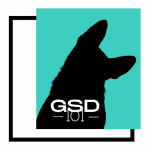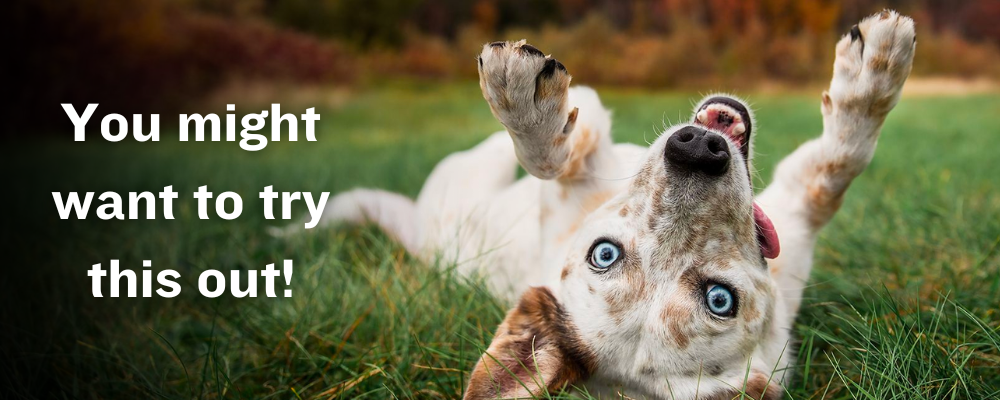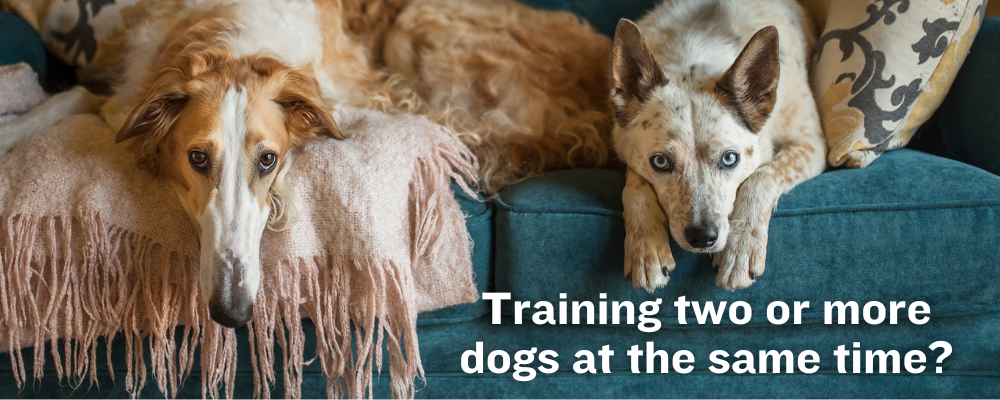We’ve all seen it before, you leave the house for a few hours, and your German Shepherd is a wreck when you return. Encased in fear and worried their owner isn’t returning is a common issue with many dogs, especially German Shepherds. Dog owners everywhere might wonder how to help their dogs with separation anxiety symptoms.
Plenty of exercises and mental stimulation can help a German Shepherd with separation anxiety. Gradually increase the amount of time your dog spends alone. Consider using a crate or giving the dog mind-stimulating toys to occupy them when you’re away.
Let’s break down how to help a German Shepherd with separation anxiety. This will take time, patience, and some treats, but once a German Shepherd understands its owner isn’t leaving forever, it’ll get better. Read on to learn how to help a German Shepherd suffering from separation anxiety.
What is separation anxiety?
Separation anxiety is triggered when dogs become upset because of separation from their guardians, the people they’re attached to according to the ASPCA. Escape attempts by dogs with separation anxiety are often extreme and can result in self-injury and household destruction, especially around exit points like windows and doors.
What are the signs of separation anxiety in dogs?
Signs of separation anxiety in dogs are the following:
- Whining or pacing
- Howling or barking
- Having indoor accidents if they’re housebroken
- Destruction like chewing on things, digging holes, or scratching at windows and doors
- Drool, panting, or excessive salivating
- Attempting to escape to the point they injure themselves
What causes separation anxiety in dogs? (80 words)
There are numerous reasons your dog has separation anxiety. Anything from a change in ownership to a move from a shelter to a home or a change in family routine can trigger it, according to pets.webmd.com. Some breeds of dogs, like German Shepherds, can also be more susceptible to separation anxiety.
The cause is typical because a dog is hyper-attached to its owner and gets stressed when that owner leaves. Sometimes a dog that doesn’t have any form of trauma can also develop separation anxiety. This can be because of a genetic condition that they were born with.
What is the difference between separation anxiety and normal behavior?
Some owners might think their dog has separation anxiety, but instead, that’s the dog acting normal. Below is a breakdown of normal behavior compared to separation anxiety behavior.
| Normal Behavior | Separation Anxiety Behavior |
| Whining for a moment or two when the owner leaves | Continually whining, barking, crying while the owner is away |
| Waiting at the door for a moment after the owner leaves | Pacing, clawing, or chewing at the door when the owner leaves |
| Having one or two accidents when left alone | Continually having accidents when owner is away even when fully potty trained |
| Boredom behavior like chewing on a chair leg | Destructive behavior like chewing on the door or window |
| Patiently waiting by the door for the owner to return | Attempting to escape the house even if it can cause injury |
| Sad face when the owner leaves | Excessive drooling or wide eyes when the owner leaves |
It might be difficult to distinguish between normal and separation anxiety behavior. According to the AKC, the best option is to install a camera to watch your dog and see what happens when left alone.
Are German Shepherds prone to separation anxiety?
Yes, German Shepherds are prone to separation anxiety.
There are two main factors for this, one they’re high-energy dogs. Dogs that have a lot of energy tend to be on the more anxious side, especially if they’re not properly exercised. That energy builds up and when you leave, they release it in a negative way,
Two, German Shepherds love being around their people. When their owners are away, it’s not an enjoyable experience for the dog. German Shepherds enjoy having jobs and helping their owners, even when they don’t need to.
How to prevent your German Shepherd from getting separation anxiety?
There are a handful of ways you can prevent your GSD from getting separation anxiety. Be mindful of the fact that every dog is different and one of these below may work better than others.
Your best bet is to apply them all if you have the resources to do so. Or, you may try a little mix-and-match:
- Gradually increase the amount of time that the dog is left alone, starting with short periods and gradually increasing the duration.
- Provide the dog with plenty of mental and physical exercise before leaving them alone.
- Leave the dog with a few toys or puzzle feeders to keep them occupied while you are away.
- Ensure that the dog has a comfortable and safe place to rest while they are alone, such as a crate or a designated area in the house.
- Consider hiring a dog walker or pet sitter to visit the dog during the day if they will be left alone for extended periods. This can provide the dog with additional mental and physical stimulation and prevent boredom.
How can I help my German Shepherd with separation anxiety symptoms?
As the owner, I would suggest a few things that can be done to treat or help with separation anxiety in German Shepherds and any other dogs.
Crate Train
The crate is your dog’s best friend. This gives your German Shepherd a safe and quiet place they can relax. Train them to understand this and see that the crate has awesome advantages like toys or chews. Don’t crate your dog all day; instead, use it to help while you’re gone.
Exercise
This is especially important with German Shepherds since they are already high-energy dogs. Physical exercise can help burn off some anxiety and allow them to settle when the owner leaves. Mental activities like puzzles and toys can also burn off stress and cause them to be tired.
Desensitization
Teaching a dog that separation comes with a reward can benefit an owner dealing with separation anxiety. Leave for short periods and gradually lengthen that amount of time gone. Reward them with high-value treats or toys before leaving to show them the reward.
Another way to desensitize is grabbing items that make the dog think they’re being left alone. Grab keys and a jacket to cook dinner or clean the house so the dog cannot associate those to leave the house.
Clinginess
This might be hard, but don’t encourage overly clingy behavior. Teach the dog independence and be alone in another room. Training a dog to know where to stay is a great way to help with this. Have them stay a short time alone in another room and work for longer times. Reward them with high-value treats and toys when they do well.
Music, white noise, and television
Any form of sound can help a dog with separation anxiety. Having music or white noise playing in the background when you’re away helping the dog think someone is around. It can also drown out any outside sounds that could potentially cause anxiety with your dog. Most music apps or televisions have options to play sounds for dogs.
Scented oils
Similar to people, dogs can benefit from scented calming oils. Oils like lavender have a way to chill dogs and people out, giving them a little more help with their anxiety. Look into purchasing a machine that helps spread these scents throughout your house. Also, check with a vet to see what is best for you dog since some oils can be toxic.
Medication
All the steps above might not be enough to help a dog with separation anxiety. Vets could recommend a medication like amitriptyline, which treats anxiety and panic, to help calm the dog. Consult a vet for your best options for treating a dog with severe separation anxiety.
Can separation anxiety be stopped?
We like to think that it can be stopped, but the answer is complex. According to the AKC, it can be hard to treat once a dog has separation anxiety. The best option is to start as soon as possible, leaving the dog alone for short periods. If separation anxiety begins, consider working with a Certified Applied Animal Behaviorist or Vet to help with the process.
Can dog day camp help my German Shepherd with separation anxiety?
Depending on your German Shepherd, day camp could help with separation anxiety. The dog would need to be 100% socially trained and behave well with other dogs. If leaving them at camp seems like the best option, preparing them to be left there without fear is still something that will need to be done.
Will a second dog help my German Shepherd with separation anxiety?
A second dog could help your German Shepherd with separation anxiety. Since German Shepherds are more prone to having anxiety when alone, leaving them with a friend could help. Some factors go into this, like whether the second dog has anxiety or whether they can play it cool when the owner is gone.
Attempting a trial run with two dogs is a good option. Grab a friend’s dog and leave the two pups alone for a short time. See what happens and then decide from there.
What not to do with a German Shepherd that has separation anxiety?
Never punish a German Shepherd who has separation anxiety. Yelling, hitting, or getting angry when the dog has this anxiety will only worsen matters. Instead, be calm and reasonable, remember it’s not their fault they feel this way, and work on what can be done to help them.
While having a house destroyed, an injured dog, or a mess when arriving home isn’t responsible. These are all responses that a German Shepherd can have when scared and they don’t know better.
You got this
The tools are there to help a dog with separation anxiety. Being patient, consistent, and working on modifying the behavior is all that needs to be done to help. These techniques can take weeks or months to work, but it will be worth it, in the long run, to support any dog dealing with separation anxiety.
Further Questions
Why are German Shepherds prone to separation anxiety?
Since they are loyal, protective, and an intelligent breed that forms a bond with their owner, separation anxiety can occur when the owner leaves for an extended period.
How do I know if my German Shepherd has separation anxiety?
Any form of excessive drooling, panting, or whining can signify anxiety. If the dog attempts to escape or hurt itself is another big sign.
What is the best way to fix separation anxiety in dogs?
There is no fast cure for separation anxiety. It takes a lot of work and training to desensitize them to something they are programmed to have, hopefully.



